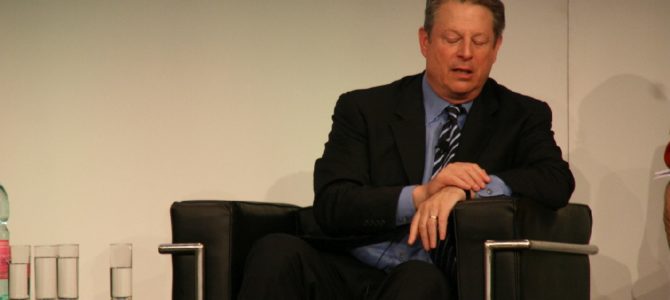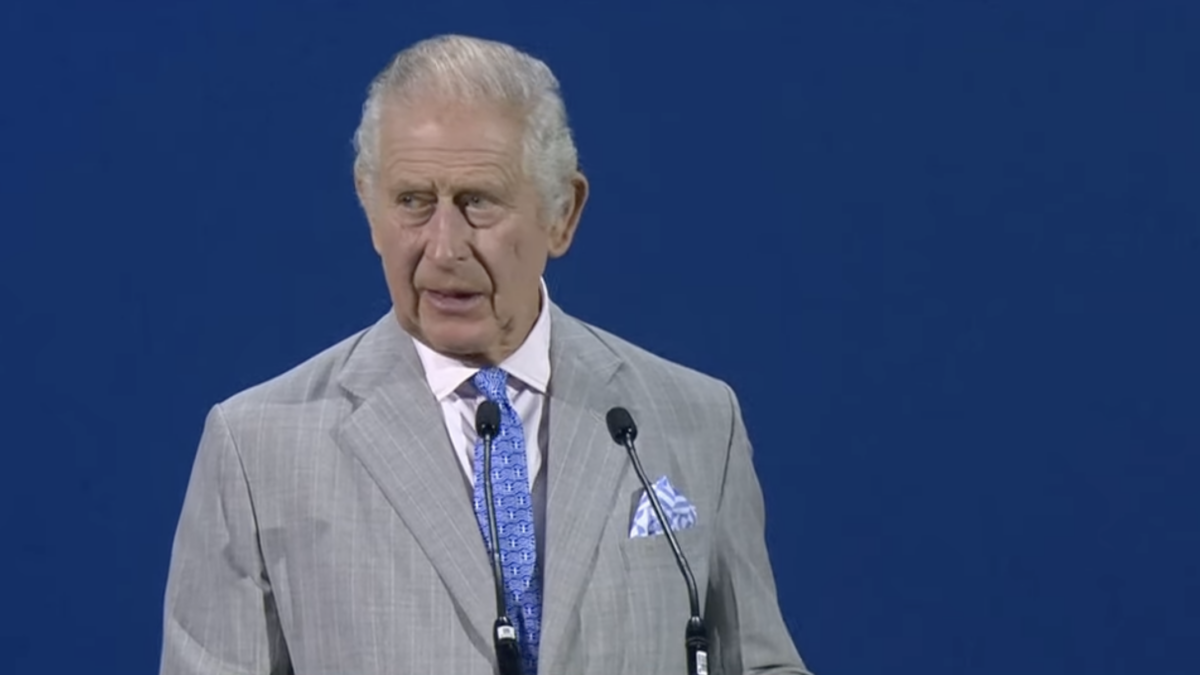
Joe Nickell is a prominent paranormal investigator who is respected and admired by skeptics. So it’s odd to find a prominent skeptic being so credulous of a politician in his response to Al Gore’s global warming documentaries.
His review opens with a stunning exposure of Nickell’s bias: “Al Gore’s An Inconvenient Truth (2006)—his powerful documentary on global warming—justly helped earn him the Nobel Peace Prize of 2007.” But of course everyone has a bias. What is truly astounding is Nickell’s complete lack of skepticism over Gore’s PowerPoint presentations.
No one, least of all a skeptic, should be able to be persuaded by Gore alone on this issue. The former VP fails basic credibility tests: he’s not an expert in the subject, nor is he an expert in a related field; he is hysterical, the issue seems highly emotional for him, which is likely to cloud his judgment; and he benefits personally from promoting his views on climate change.
Nickell should approach Gore with the same level of credulity he approaches an alleged haunting, UFO sighting, or really any claim that can be answered scientifically. But it seems that he is a selective skeptic. About things that don’t really matter, like ghosts, he goes to great pains to disprove. But the importance of the nebulous, non-binding Paris Accord, that he’s willing to take on the word of a shill.
Appeals to Authority Instead of to Data
The only rational way to explain this sort of credulity is scientism. Global warming always prompts the same prime argument from the Left: There is a vast scientific consensus. Real data is rarely presented or explained. The main support for their claims is just an appeal to authority. The authority being appealed to is a relevant authority, so it’s not formally fallacious, but it’s also not persuasive to actual skeptics.
Actual skepticism is not based in the epistemology of scientism but logic, consistency, and evidence. Science uses these tools. Scientism treats scientists like inerrant bishops.
The only thing Nickell writes that remotely resembles a piece of data is “Gore stresses that, of the planet’s fifteen hottest years recorded, fourteen have occurred since 2001!” Sounds like pretty good evidence for climate change that contemporary human activity would almost certainly be responsible for. But it’s a bit more complicated than that.
Nickell, the skeptic, claims that 14 of the 15 hottest years in the planet’s history occurred in the last 16 years. And Nickell almost assuredly believes that the earth is more than 4 billion years old. That’s the standard “skeptical” scientific consensus about how old the earth is. But scientists have only collected about 150 years of actual global temperature data.
Dr. Roy Spencer, an expert in this field, refutes Gore’s claim in his excellent rebuttal,
“An Inconvenient Deception”: “Since our observational record with actual thermometers only extends back 100–150 years, we don’t have real temperature measurements to determine just how unusual recent warmth is.”
So Nickell believes Gore is right to claim that the 14 hottest years in our history were in the last two decades, yet without putting that data into context of other relevant data. It’s hard to explain just how foolish and anti-scientific this claim is. Nickell, the scientific skeptic, is arguing that he knows exactly when the hottest years in our planet’s entire history took place based on less than 1 percent of the relevant data. Actually it works out to something like 0.000004 percent of the relevant data. Philosophers call that an argument from ignorance.
Tell The Truth: It’s Almost All Speculation
Nickell’s rejoinder could of course be that we don’t have access to the rest of the relevant data since thermometers didn’t used to exist, but that’s basically an admission of his arrogant guilt. No one is blaming the actual data. Data can’t create PowerPoints or morally posture on Twitter. The data is fine. What’s not fine is making insane claims based on data we do not have.
When someone says he knows that the 15 hottest years of the last 150 years are actually the 15 hottest in our planet’s history, he is making a deeply ignorant claim insupportable with hard evidence, as opposed to theoretical extrapolations. He is claiming that the more than 4 billion years we don’t know anything about were cooler than those 15 years we do know something about. It’s simply illogical.
Spencer is much more responsible in his short book. He cautiously presents predictions about past global temperatures “that it was just as warm during the Medieval Warm Period of ~ 1,000 years ago, as well as the Roman Warm Period of ~ 2,000 years ago, as it is today. Those were periods when humans flourished. If people had been monitoring temperatures then, they likely would also be reporting record warm years, year after year, much as we are today.” This is all speculation, as Spencer makes clear. That’s the point. Spencer is being rational and cautious. Gore bases his ridiculous hysterical conclusions on factoids that are often easily disproven.
Taking a strong unskeptical stance on this issue isn’t helping the debate. Most of us should just admit we really don’t know enough to have good opinions on this subject and, rather than watch Gore rave, actually read what real scientists think. In other words, we should be intellectually humble and responsible. But as long as people like Nickell claim to be scientific and skeptical while cherry-picking what they will be skeptical about, this debate will continue to be just a bunch of noise.









